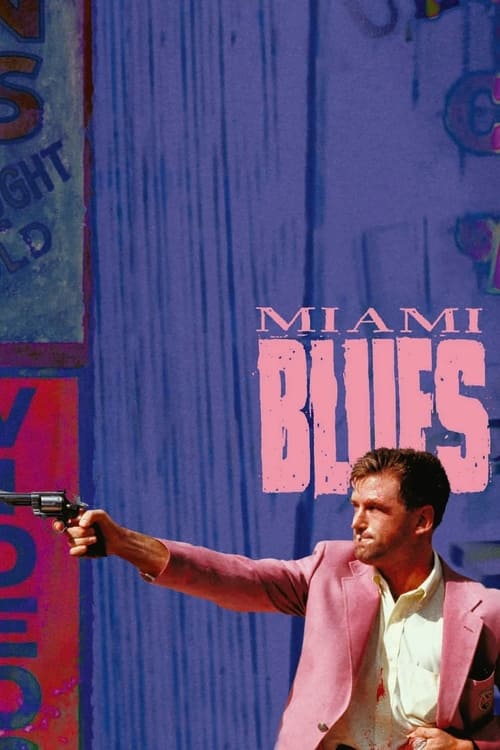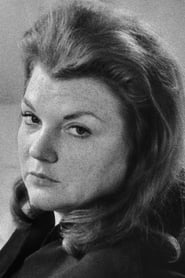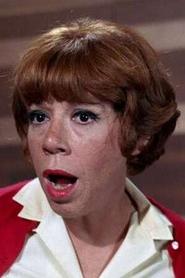Cast
View AllFred Ward
as Sergeant Hoke Moseley
Alec Baldwin
as Frederick J. Frenger Jr.
Jennifer Jason Leigh
as Susie Waggoner
Nora Dunn
as Ellita Sanchez
Charles Napier
as Sergeant Bill Henderson
Shirley Stoler
as Edie Wulgemuth
Bobo Lewis
as Edna Damrosch
Obba Babatundé
as Blink Willie
José Pérez
as Pablo
Paul Gleason
as Sergeant Frank Lackley
Cecilia Pérez-Cervera
as Stewardess
Georgie Cranford
as Little Boy
Edward Saxon
as Krishna Ravindra
Matt Ingersoll
as Mourning Hare Krishna
Jack G. Spirtos
as Pickpocket Victim
Crew
Director
- George Armitage
Producer
- Gary Goetzman
- Jonathan Demme
Reviews
John Chard
Miami Blues is directed by George Armitage who also adapts the screenplay from the novel of the same name written by Charles Willeford. It stars Alec Baldwin, Fred Ward, Jennifer Jason Leigh and Charles Napier. Music is by Gary Chang and cinematography by Tak Fujimoto.
Ex-con Frederick Frenger Jr. (Baldwin) lands in Miami and quickly continues his criminal ways. Hooking up with gullible prostitute Susie Waggoner (Leigh), Frenger, by now under suspicion for the killing of a Hare Krishna man at Miami airport, steals the identity of the policeman investigating him and ups his crime spree...
This is all about the characterisations, for the story is simple and played as a darkly comic hard boiled cop picture. We are in a stripped back Miami, no gloss here, wherever the psychotic Frenger goes, there is crime that he is only too willing to enhance. Quite often with violent but humorous results. His union with Susie is a matter of convenience, as she, the gullible tart with the heart, dreams of a white picket fence house - marriage - babies, he dreams only of her cash and the comfort of cover she affords his criminal doings. Then there is Sgt. Hoke Moseley (Ward), straight out of noirville, world weary, grizzled, incapable of genuine affection, tatty and someone who soaks his false teeth in a glass of brandy! It's a wonderful character brought vividly to life by Ward, especially when Frenger steals said set of teeth! And with Leigh and Baldwin also making good on the characters as written, this is very much worth a look for the acting performances.
It's not under seen or under valued, the respective ratings on internet sites and critical appraisals are about right. There's some value in the dark comedy born out of the crime sequences, where we are dared not to smile, and the violence is impacting without hitting us over the head for the sake of it. But without Junior, Susie and Hoke holding our attention, the film would be flat and forgettable. 6/10
Sep 25, 2014
Thematic Analysis
As a dramatic work, Miami Blues examines complex human relationships and emotional struggles against the backdrop of a period setting that reflects societal issues of its time. The character development particularly stands out, offering viewers a chance to reflect on their own life journeys.
Director George Armitage brings their distinctive visual style to this film, continuing their exploration of themes seen in their previous works while adding new elements. Their approach to character development and emotional depth creates a viewing experience that rewards close attention.
Released in 1990, the film exists within a cultural context that now offers viewers historical perspective on the social issues of that era. Its reception demonstrates the diverse reactions to its artistic choices and its place in cinema history.
Did You Know?
- The production of Miami Blues took approximately 5 months from pre-production to final cut.
- The final cut of the film runs for 97 minutes, though the director's initial assembly was reportedly 147 minutes long.
- The musical score contains over 47 unique compositions.
- The screenplay went through 6 major revisions before the final shooting script was approved.
- The director insisted on using practical effects whenever possible, reserving CGI for only the most necessary scenes.
Historical Context
- In 1990, when this film was released:
- Digital technology was transforming the entertainment industry.
- Globalization was accelerating economic and cultural exchange.
- Independent cinema was growing in influence, challenging the dominance of major studios.
How This Film Stands Out
While Miami Blues shares thematic elements with other films in its genre, it distinguishes itself through its unique approach to storytelling, visual style, and character development.
Unlike Sparrow, which focuses more on action than character development, Miami Blues subverts genre expectations by exploring its themes with greater nuance.
While films like I Don't Know Who You Are and Up Close & Personal explore similar territory, Miami Blues stands apart through its deeper exploration of its central themes and more complex characterization.
This film's unique contribution to cinema lies in its thoughtful balance of entertainment value and thematic depth, making it a valuable addition to its genre.
Details
- Release Date: April 20, 1990
- Runtime: 1h 37m
- Revenue: $9,888,167
Where to Watch






















